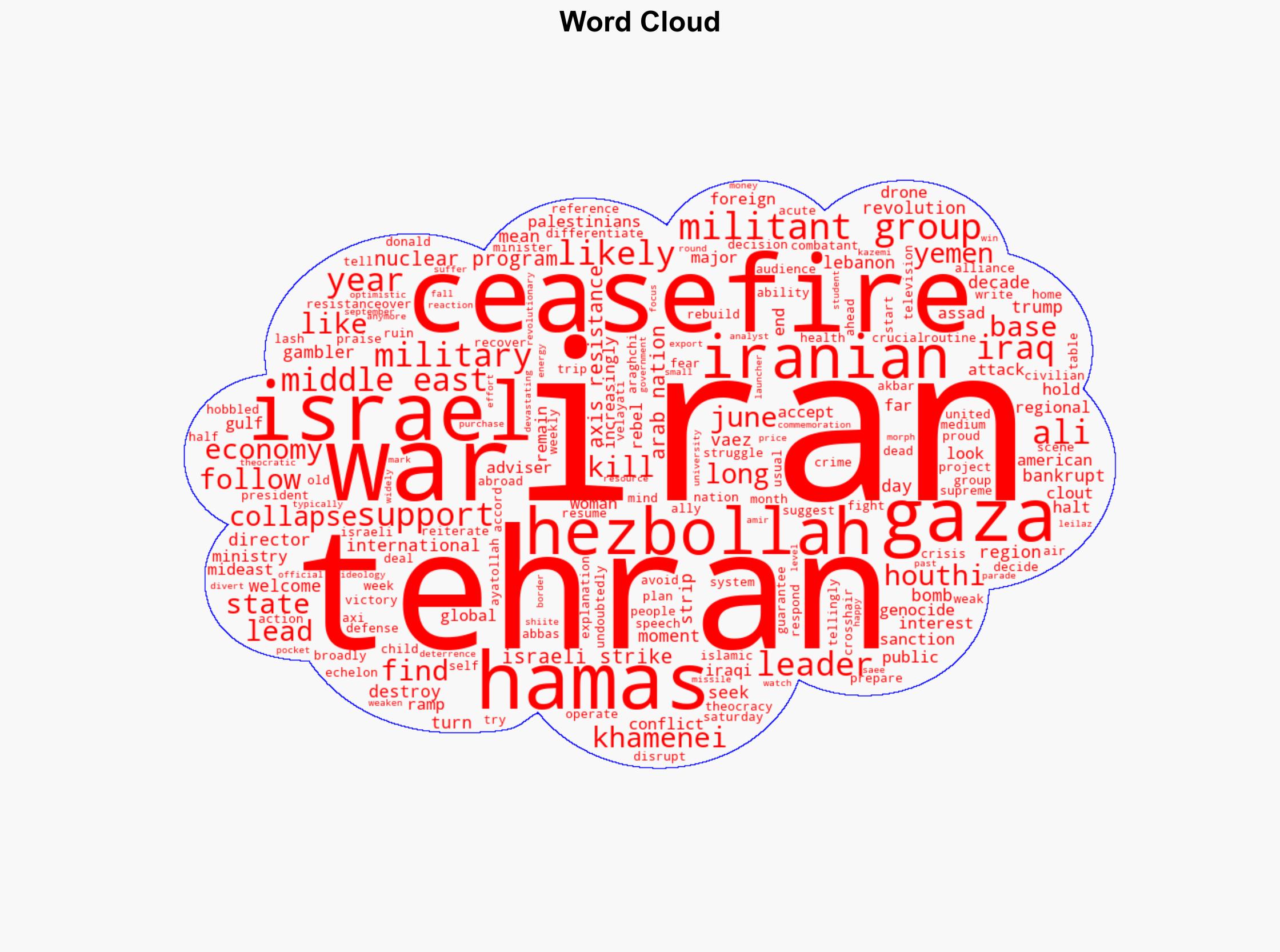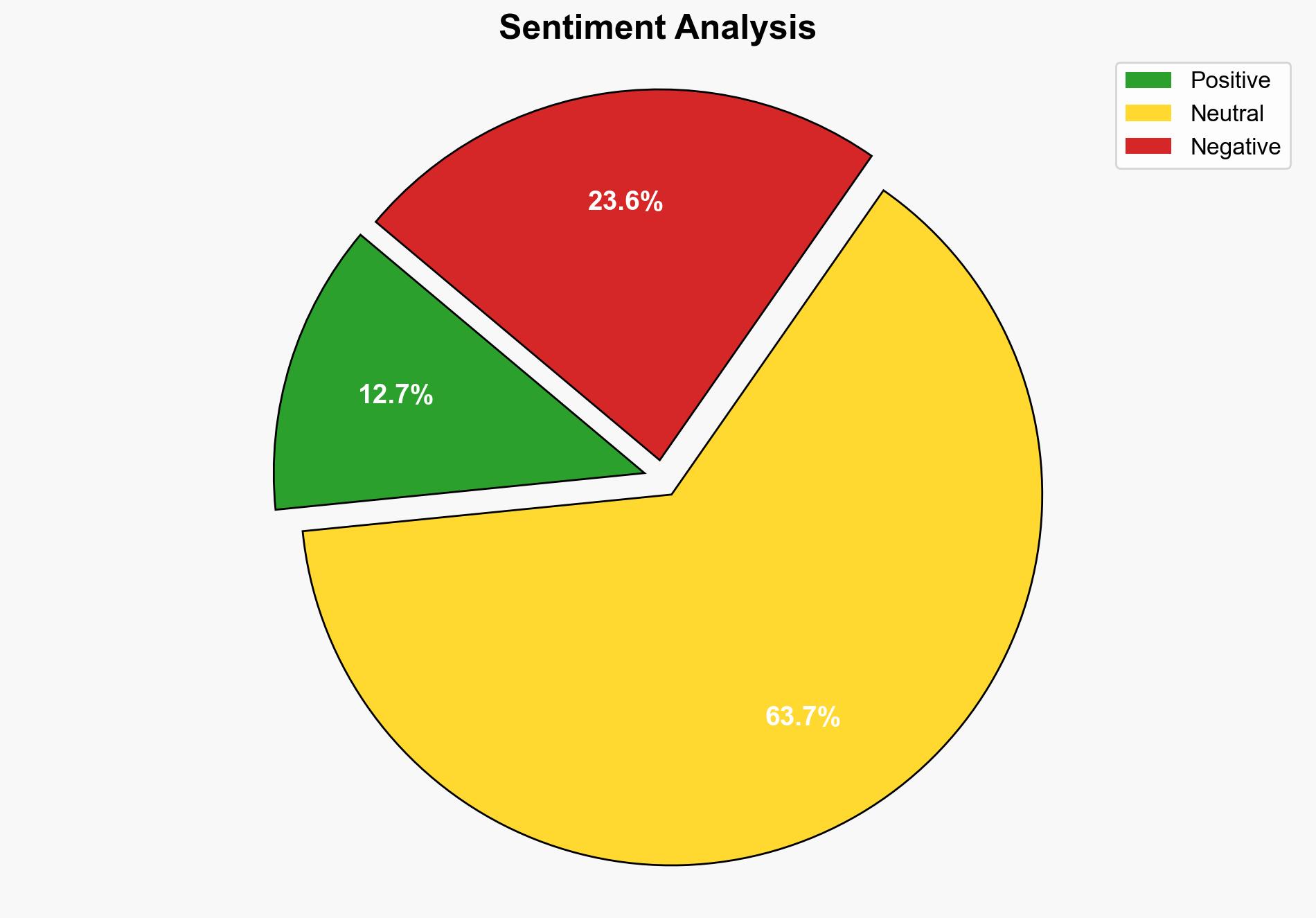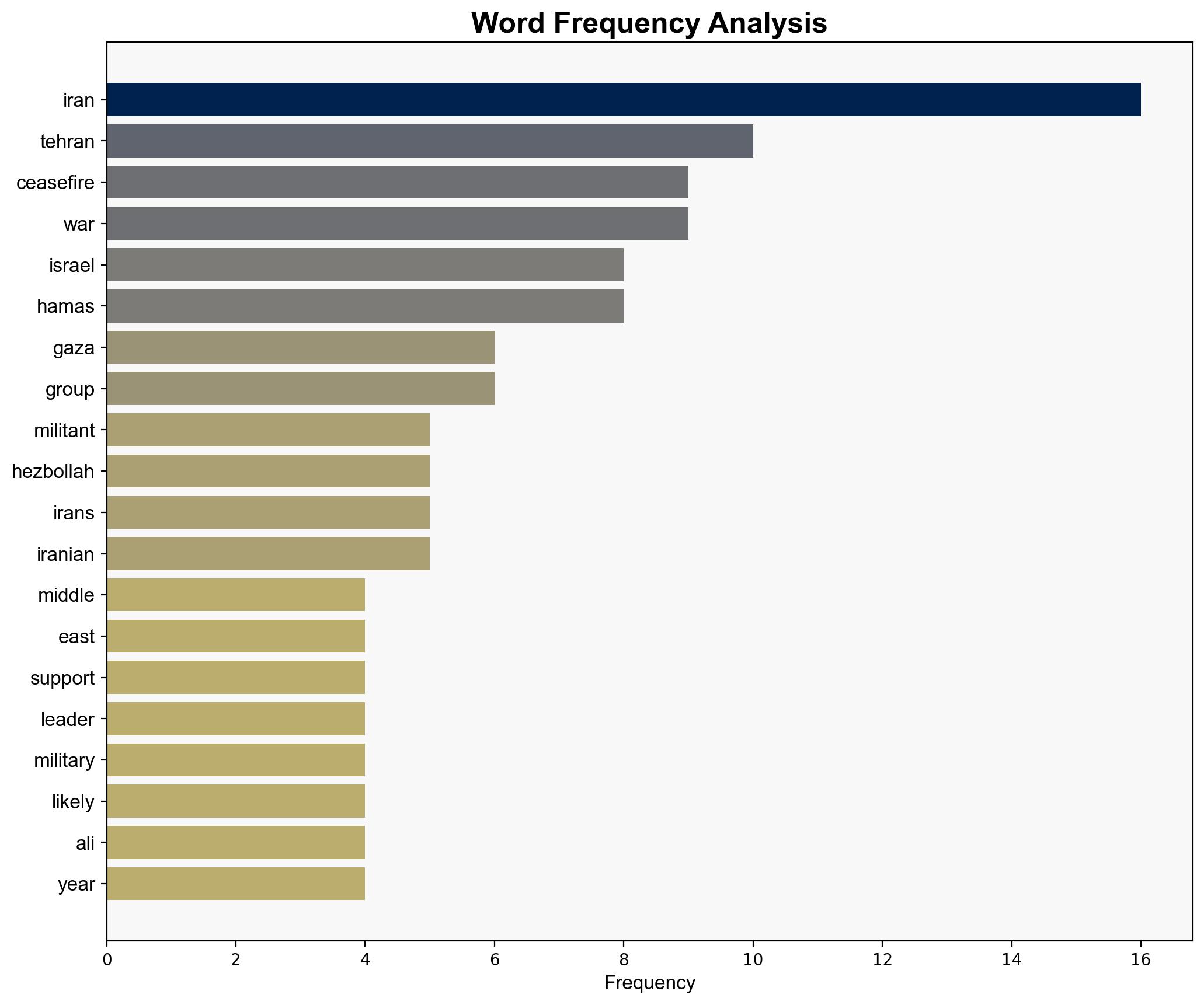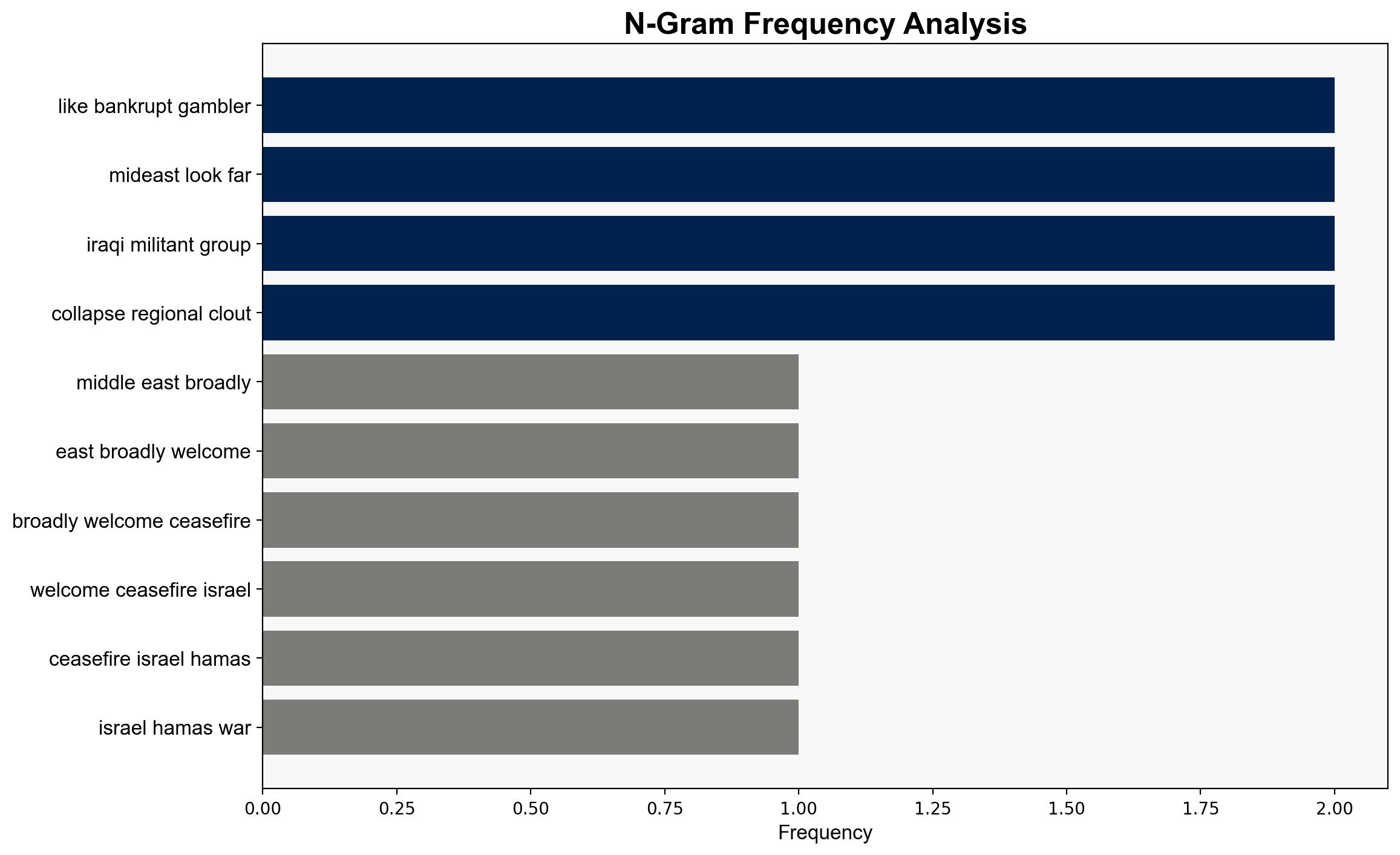As the Mideast unites around the Gaza ceasefire Iran is at one of its weakest moments since the 1979 revolution – Fortune
Published on: 2025-10-12
Intelligence Report: As the Mideast unites around the Gaza ceasefire Iran is at one of its weakest moments since the 1979 revolution – Fortune
1. BLUF (Bottom Line Up Front)
Iran’s current geopolitical position is precarious, potentially limiting its influence in the Middle East. The most supported hypothesis suggests Iran’s weakened state may lead to reduced support for allied militant groups, altering regional power dynamics. Confidence level: Moderate. Recommended action: Monitor Iran’s internal stability and regional alliances closely to anticipate shifts in Middle Eastern geopolitics.
2. Competing Hypotheses
Hypothesis 1: Iran’s weakened state will lead to a strategic withdrawal from its regional engagements, reducing support for groups like Hezbollah and Hamas, thereby altering the balance of power in the Middle East.
Hypothesis 2: Despite its weakened state, Iran will double down on its support for allied militant groups to maintain its influence, potentially escalating regional conflicts.
Using ACH 2.0, Hypothesis 1 is better supported by current intelligence, indicating Iran’s economic struggles and international sanctions are significantly impacting its ability to project power.
3. Key Assumptions and Red Flags
– Assumption: Iran’s economic difficulties will limit its capacity to support militant groups.
– Red Flag: Iran’s historical resilience and adaptability in the face of sanctions and economic challenges.
– Potential cognitive bias: Underestimating Iran’s ideological commitment to its regional allies.
– Missing data: Detailed insights into Iran’s internal decision-making processes and resource allocation.
4. Implications and Strategic Risks
– A reduction in Iranian support could destabilize groups like Hezbollah and Hamas, leading to power vacuums and increased volatility in the region.
– Economic pressures may drive Iran to seek alternative alliances or escalate cyber operations as a means of exerting influence.
– Potential for increased regional arms races as neighboring states react to perceived shifts in power dynamics.
5. Recommendations and Outlook
- Enhance intelligence gathering on Iran’s economic conditions and internal politics to better predict shifts in its foreign policy.
- Strengthen diplomatic ties with regional allies to counterbalance potential Iranian influence.
- Scenario Projections:
- Best Case: Iran focuses on internal recovery, leading to reduced regional tensions.
- Worst Case: Iran escalates support for militant groups, provoking regional conflicts.
- Most Likely: Iran maintains a cautious approach, balancing internal recovery with limited external engagements.
6. Key Individuals and Entities
– Ali Khamenei
– Ali Akbar Velayati
– Abbas Araghchi
– Saee Leilaz
– Amir Kazemi
7. Thematic Tags
national security threats, cybersecurity, counter-terrorism, regional focus





